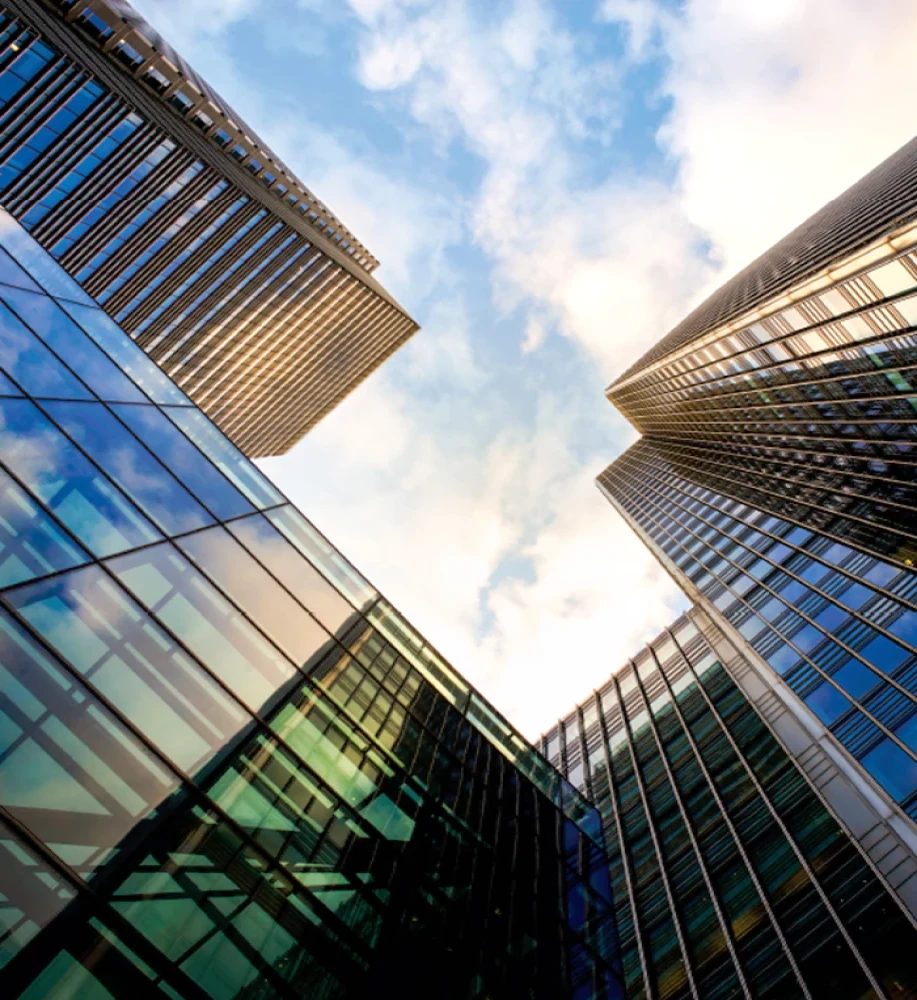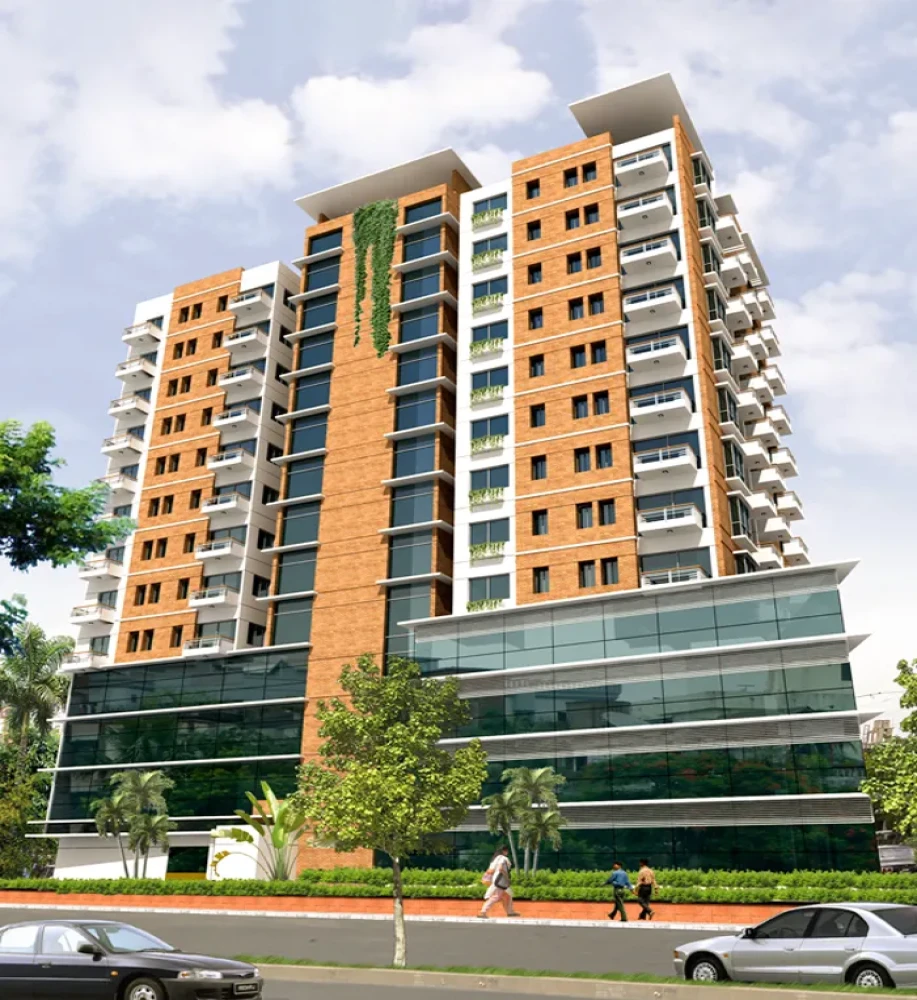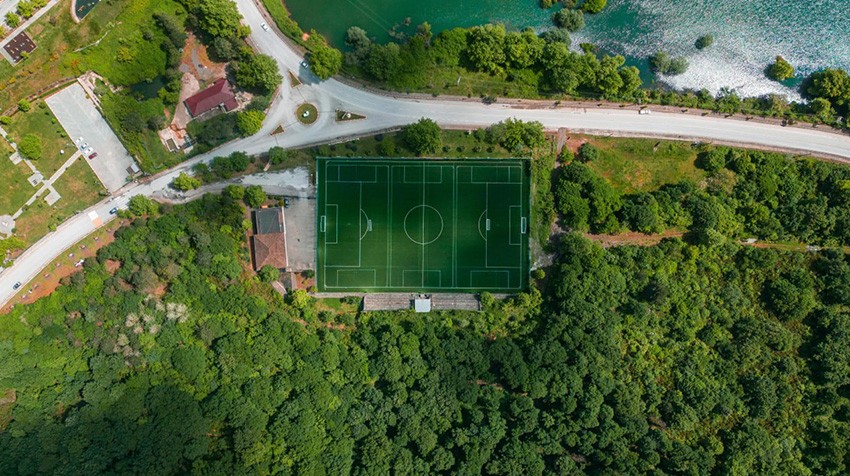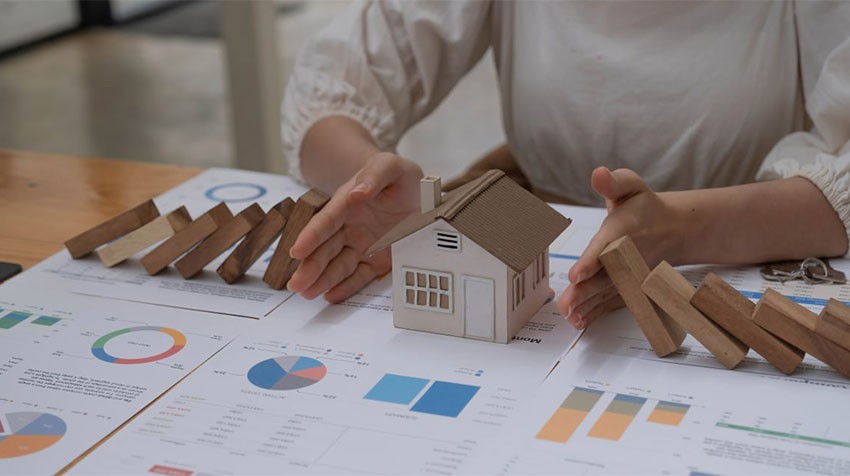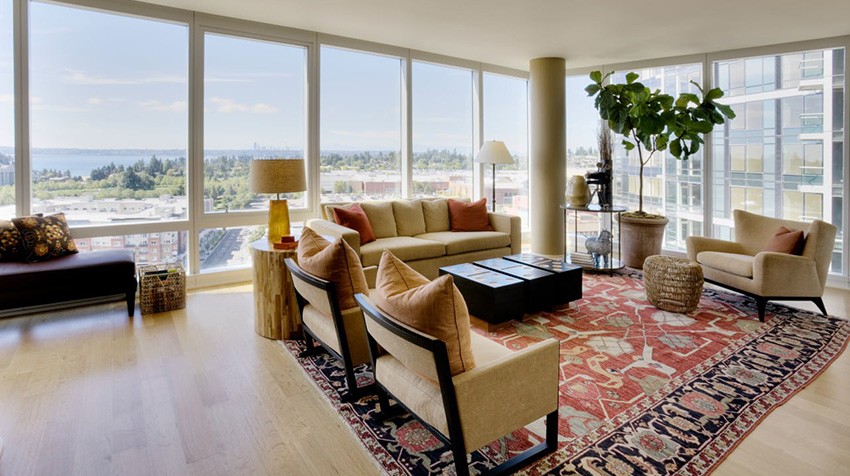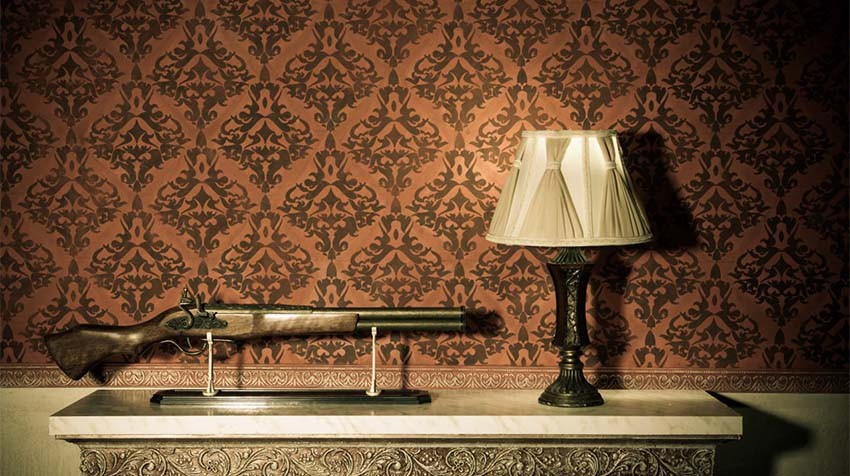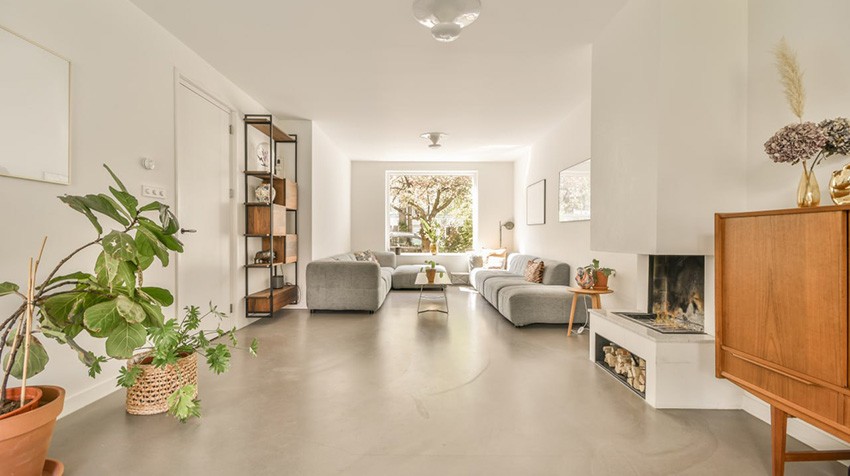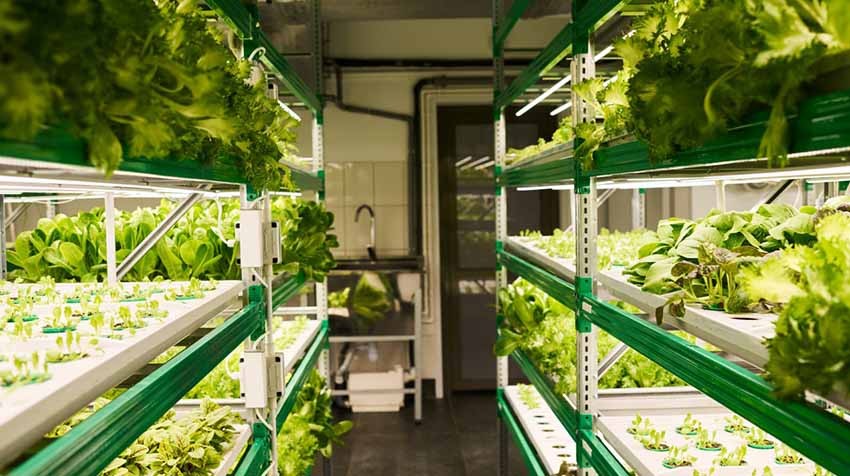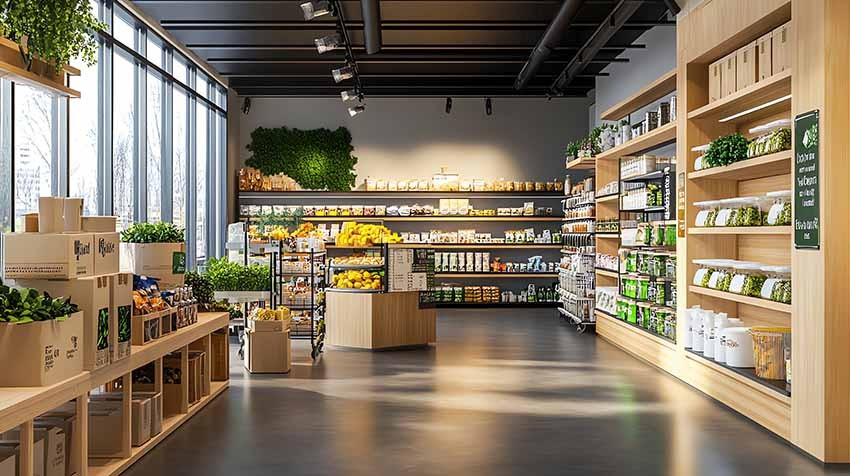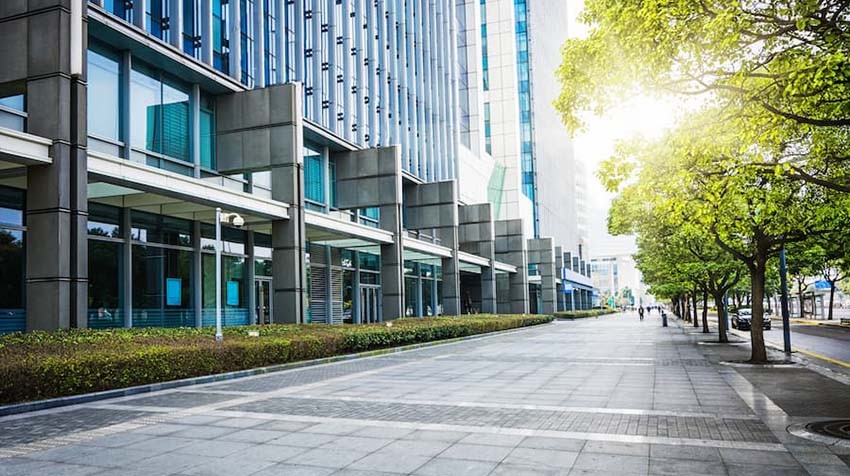
GREEN LINK, Tejgaon
Size : 379674 sft.
GREEN SWARANIKA, Tejgaon
Size : 17 katha
The Evolving Hub of Industry, Heritage, and Modern Living
The landscape of Tejgaon is a captivating blend of modern developments and enduring landmarks. Towering skyscrapers pierce the skyline, symbolizing the area's economic dynamism, while serene parks and gardens offer tranquil retreats amidst the urban buzz.
Physical Attributes:
Tejgaon is a bustling thana (sub-district) nestled within the heart of Dhaka, Bangladesh. Situated at coordinates 23.7583°N 90.3917°E, Tejgaon encompasses a total area of 2.74 square kilometers, making it a compact and densely populated urban hub with total 174593; male 101877, female 72716, Muslim 168604, Hindu 4940, Buddhist 928, Christian 95 and others 26 (updated on June 17, 2021). Its strategic location, bordering Gulshan to the north, Dhanmondi to the south, Lalmatia to the east, and Mohammadpur to the west, has played a pivotal role in its transformation into a thriving commercial and industrial center.
The Architectural Wonders:
Tejgaon's architectural landscape is a captivating fusion of colonial-era heritage, modern high-rise developments, and diverse residential styles, reflecting its rich history, economic dynamism, and cultural tapestry. From the red brick facades and arched doorways of colonial-era buildings to the sleek glass facades and contemporary designs of modern architecture, Tejgaon's cityscape is a testament to its evolution and progress.
The Future of Tejgaon:
Tejgaon, a dynamic industrial and commercial hub in Dhaka, Bangladesh, is poised for a future that builds upon its rich heritage while embracing innovation and sustainability. As it transitions from a bustling industrial center to a modern metropolis, Tejgaon is expected to prioritize environmental consciousness, smart city initiatives, and community-centric development. The area's architectural landscape will likely evolve to include more green buildings, energy-efficient technologies, and pedestrian-friendly spaces. Tejgaon's future is envisioned as a harmonious blend of economic prosperity, environmental stewardship, and social well-being, making it a model for sustainable urban development in Bangladesh.
The Remarkable History:
Tejgaon's history dates back to the 17th century when it was a small village. In the 19th century, Tejgaon's proximity to Dhaka and its access to waterways attracted industries and businesses. During the British colonial era, Tejgaon became a hub for jute and cotton mills. After Bangladesh's independence, Tejgaon accelerated its development and became a key player in the country's industrial and economic growth. In recent decades, Tejgaon has transitioned into a commercial and cultural hub. Today, Tejgaon stands as a symbol of progress, innovation, and diversity.
Environmental Impact:
Tejgaon's rapid development and industrial activities have led to increased air and water pollution, loss of green spaces, and noise pollution. Air pollution from factories and vehicular emissions contributes to respiratory problems and other health hazards. The expansion of concrete structures has reduced green spaces, limiting the absorption of carbon dioxide and contributing to urban heat island effects. Noise pollution from traffic and industrial activities disrupts the tranquility of the environment and can lead to hearing impairment and stress. In an effort to optimize space, promote sustainable urban development, and enhance living standards, the Bangladesh government is relocating industries from Tejgaon to designated industrial zones and simultaneously transforming Tejgaon into a thriving commercial and residential hub. State-of-the-art industrial zones are being developed to accommodate businesses, while Tejgaon is witnessing a surge in construction of high-rise commercial buildings and well-planned residential complexes. This comprehensive strategy aims to revitalize Tejgaon, fostering innovation, entrepreneurship, and economic growth while creating a modern and sustainable urban environment.
Cost of Living:
The cost of living in Tejgaon is moderate compared to other parts of Dhaka. While housing costs can be higher in certain areas, the overall cost of living is considered affordable for most residents. Access to affordable food, transportation, and other necessities is readily available, making Tejgaon an attractive option for those seeking a balance between affordability and well-being among Tejgaon residents.
Safety:
Tejgaon is considered a relatively safe area, with a low crime rate as the prime minister's office is here. The presence of police stations and community policing initiatives further enhances safety for residents. Regular patrols, community awareness programs, and prompt response to crime incidents contribute to a sense of security and well-being among Tejgaon residents.
Connectivity:
Connectivity is a hallmark of Tejgaon, making it a well-connected hub within Dhaka's transportation network. The metro rail station, elevated expressway, Tejgaon railway station, the second busiest in Dhaka, provides seamless access to other parts of the city and beyond. Buses and auto-rickshaws ply the streets, offering convenient and affordable transportation options for residents and visitors alike.
Education:
Tejgaon is home to a plethora of renowned schools, colleges, and universities, providing access to quality education for students of all ages. As Dhaka Cantonment’s entry gate/ Jahangir gate is in Tejgaon, students can take advantage of world-class education from cantonment's schools and colleges. From prestigious institutions like, Shaheed Bir Uttam Lt Anwar Girls’ College, Bangladesh Navy College, Dhaka , BAF Shaheen College, Kurmitola, Dhaka Cantonment Girls' Public School & College, and Bangladesh International School and College, Nirjhor to the renowned Adomjee Cantonment College, Tejgaon's educational landscape fosters a vibrant intellectual community.
B.A.F Shaheen College, BAF Shaheen English Medium School, Holy Cross College, Dhaka Ideal College Tejgaon, Daffodil International Academy, Sunbeams School, South Breeze Academy, Tejgaon Mohila College, Government Science College,Tejgaon, Dhaka, Bangladesh University of Textiles, Dhaka Polytechnic Institute, Hamdard Public College, Government Science College, Tejgaon College, Tejgaon Govt High School, Tejgaon Government Girls' High School, Green University of Bangladesh, University of Dhaka, and many more.
Available Financial Services:
Tejgaon is a home to a thriving commercial and financial hub. The area boasts a diverse range of banks, offering a wide variety of financial products and services to residents and businesses alike. Here's a comprehensive overview of the major banks in Tejgaon:
Sonali Bank Limited, Agrani Bank Limited, Janata Bank Limited, Dutch-Bangla Bank Limited, Brac Bank Limited, Eastern Bank Limited, Standard Chartered Bank (SCB), Dhaka Bank Limited (Trade Operation), IFIC Bank Limited, HSBC Bank Limited | Management Office, Pubali Bank Limited, Dhaka Bank Limited (Trade Operation) etc.
These are just a few examples of the many banks operating in Tejgaon. With such a diverse range of financial institutions, residents and businesses have access to a wide array of banking options, ensuring they can find the financial services that best suit their needs.
Healthcare:
Tejgaon residents have access to quality healthcare services through a network of hospitals, clinics, and medical professionals. Renowned hospitals like BIRDEM General Hospital, Bangladesh ENT Hospital, CPHD General Hospital Ltd, and Shashunagar General Hospital provide comprehensive medical care, while specialized clinics cater to specific needs. A strong presence of qualified doctors and healthcare providers ensures that residents have access to prompt and effective medical attention.
Recreation:
Bangabandhu Military Museum, Bangabandhu Sheikh Mujibur Rahman Novo Theatre, , Bijoy Soroni fountain, SAARC Fountain,
Governmental and Autonomous Organizations:
Autonomous:
Bangladesh Air Force Headquarter, BGMEA (Bangladesh Garment Manufacturers and Exporters Association), Bangladesh Telecommunication Regulatory Commission (BTRC), Bangladesh Securities and Exchange Commisson (BSEC)
Governmental:
Prime Minister's Office, Jatiyo Sangshad Bhaban, Tejgaon Thana, the Tejgaon Revenue Office, and the Tejgaon Passport Office , Ministry of Commerce, Ministry of Jute and Textile
Tejgaon Airport:
Tejgaon Airport, a historic aviation hub in Dhaka, Bangladesh, dates back to World War II when it served as a military airfield. It became the country's first civilian airport in 1947 but relinquished that role to Shahjalal International Airport in 1981. Despite this, Tejgaon Airport remained operational for domestic flights and BAF training. A devastating fire in 1994 was followed by swift restoration, and the airport underwent further modernization efforts in recent years. Today, Tejgaon Airport continues to serve as a vital domestic hub and a training ground for future aviators.
